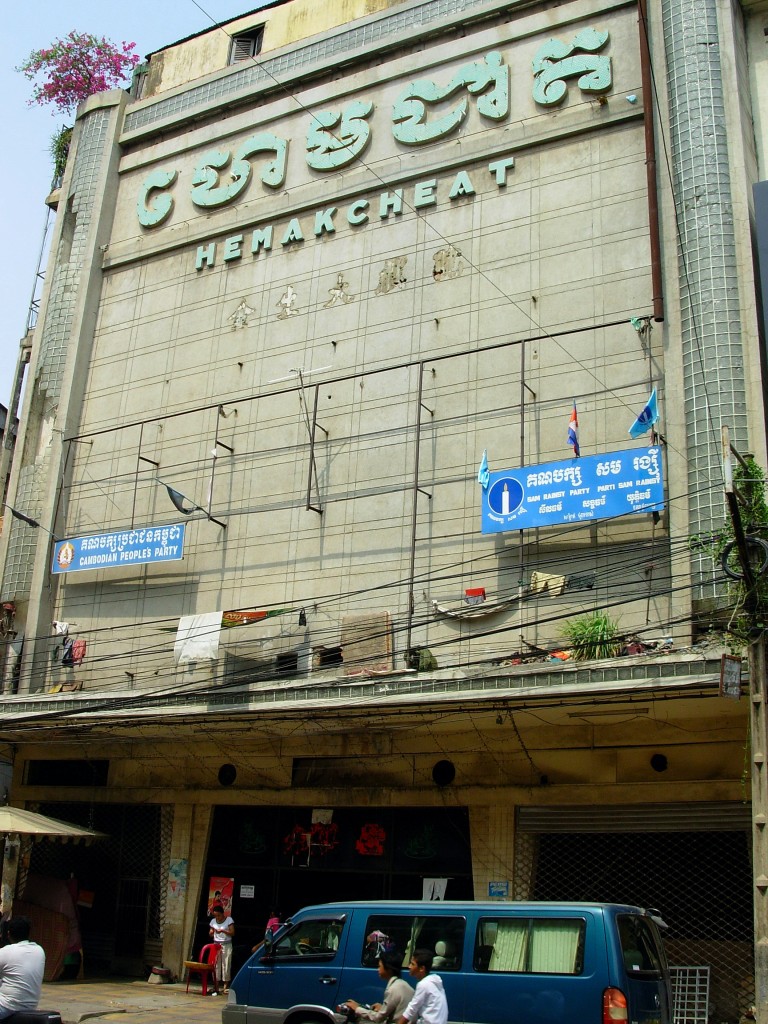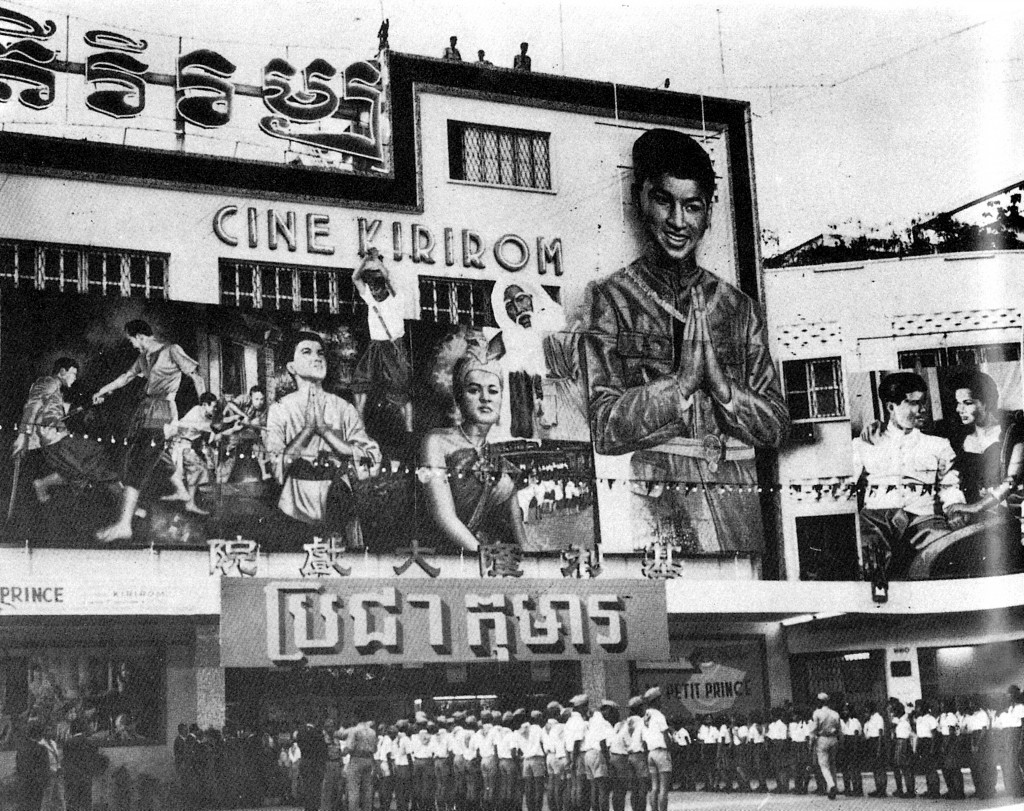The 2011 documentary Golden Slumbers, about the destruction of Cambodia’s pre-1975 film industry at the hands of the Khmer Rouge, is the last film from recent Melbourne International Film Festival I’ve been meaning to review.
I’ve been thinking about Cambodia a lot in the last couple of weeks. My debut novel Ghost Money, a crime novel set in the country in the mid-nineties was recently released. Amongst the many themes it deals with is the lingering impact of the destruction wrought by the Khmer Rouge on Cambodia society.
Golden Slumbers deals with one aspect of this, the almost complete eradication of Cambodia’s local film industry. I’ve written previously about the destruction of the countries incredibly vibrant pre-1975 music scene. The Khmer Rouge did the same thing to actors, directors and any one else they could find who was associated with cinema.
In their effort to obliterate what they saw a corrupt society, they destroyed movie studios, burnt any movie stock they found, killed actors, directors and technicians. So comprehensive were their efforts that out of some 400 movies that were produced prior to 1975, all that is left today are a few images, some radio grabs and sound track titles, posters and a handful of the original participants.
The survivors are a strange lot. Dy Savath, an actress before 1975, still exudes sixties star power with her modish hair cut and clothes. Yuan Hem was a film maker. There’s also a man who owned cinema in Phnom Penh and another director.
On one level, I found it hard to have any sympathy these people. They were at the centre of pre-1975 cosmopolitan Phnom Penh society, an the elite who partied while American B52s carpet bombed the countryside and poor kids from the cities fought a brutal civil war at the behest of a corrupt US-backed regime against poor kids from the countryside recruited by the Khmer Rouge.
At the same time, one can’t help but admire the tenacity with they cling to their memories in the face of advancing age, the massive physical and geographical changes that have taken place in Cambodia, and the distorting impact of trauma and the diaspora experience.
Savath visits a rural village where she filmed a famous scene on a hill. The old people remember and take her to the hill, named after her, which doesn’t exist any more. Hem takes his children to his old film studio, now a welding shop, another participant reminisces about a film that no longer exists. We visit some of the 30 or so cinema that used to flourish in Phnom Penh. One, the thousand plus seat Hemakcheat theatre, is now a squat for a hundred or so families. Another is a pool hall.
 It’s also pretty clear that the memories are cherished by more than just the survivors of the industry. In one memorable sequence, Director Davy Chou interviews squatters in the Hemakcheat about their favourite pre-1975 films. There are also a couple of bizarre local cinema buffs that talk obsessively about films that no longer exist. One even admits that while he cannot remember his relative killed by the Khmer Rouge he can remember the films he saw as a child.
It’s also pretty clear that the memories are cherished by more than just the survivors of the industry. In one memorable sequence, Director Davy Chou interviews squatters in the Hemakcheat about their favourite pre-1975 films. There are also a couple of bizarre local cinema buffs that talk obsessively about films that no longer exist. One even admits that while he cannot remember his relative killed by the Khmer Rouge he can remember the films he saw as a child.
Chou, the grandson of prominent Cambodian producer Vann Chann, made the film with close cooperation of the government. As such, it has the whiff of promoting an official version of culture. There’s no mention of Sihanouk, the country’s pre-1975 monarch and a prodigious, if not particularly talented, director of numerous films.
After the Vietnamese army deposed the Khmer Rouge the film industry enjoyed a resurgence of sorts. People flocked back to cinema to see films from Soviet Union, Eastern Europe and Vietnam. Local content started being made again, too. But the industry was demolished by raising production costs, the availability of cheap DVDs and the closure of the vast majority of the capital’s cinemas.
Young people using digital technology are starting to make local films and there is a strong grindhouse industry churning out cheap horror films. But that’s not necessarily the type of culture the government or the survivors of the pre-1975 movie industry want to promote.
I’m reminded of an interview I read with Savath in which she argues the government should make a bigger effort to protect music of artists like Ros Sereysothea against young people who are sampling and combining it with rap and house music. Culture moves on even if the people who originally produced parts of it don’t.
Golden Slumbers is a deeply flawed, deeply moving film about the struggle to remember and the tricks memory plays.
Black and white photograph courtesy of South East Asian Film Studies Institute





















Great review, Roo. Intriguing notion to make a documentary about something that exists only in remnants of memory, if at all.
Pingback: » Golden Slumbers: Cambodia's lost film industry | Pulp Curry
Pingback: “Golden Slumbers: Cambodia’s lost film industry” (August 27, 2012) | Le Sommeil d'Or (Golden Slumbers)